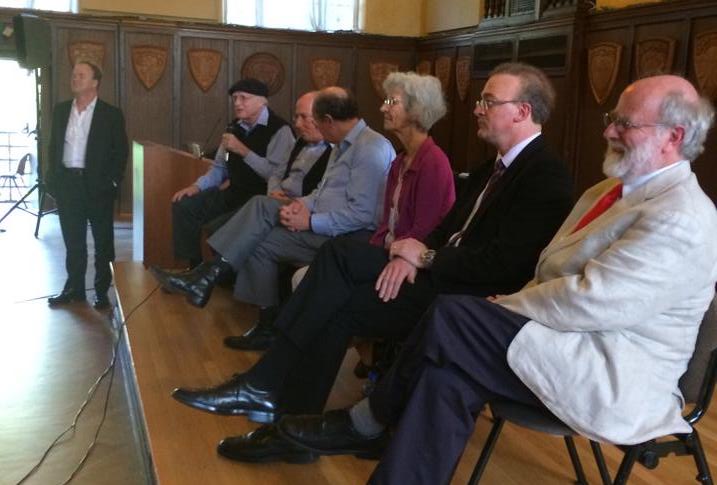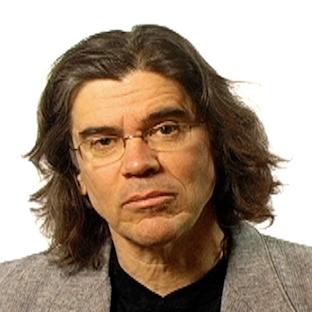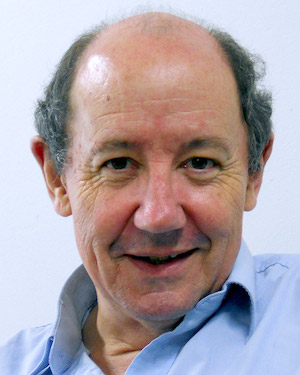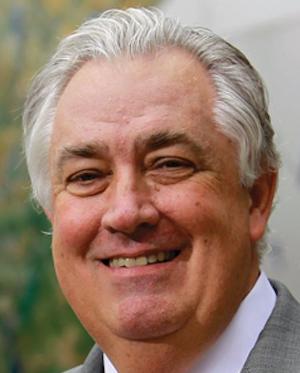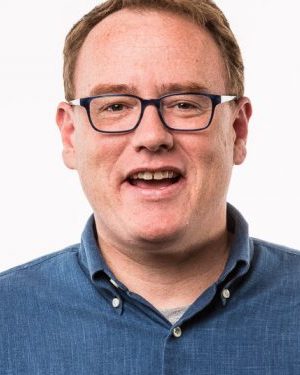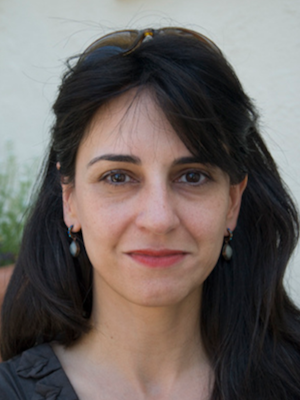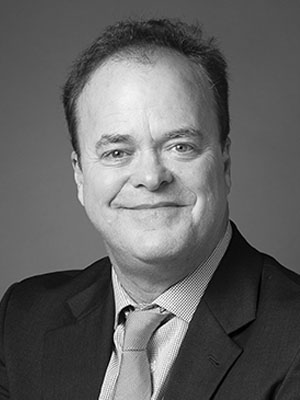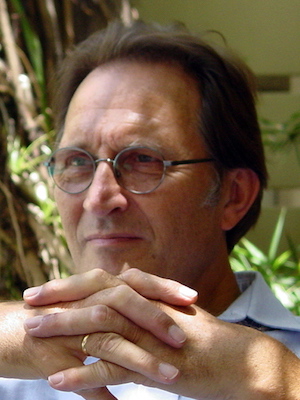Schedule Status: Published
This is the most up to date schedule.
Quick Navigation Links
Thursday | 9:00 AM | Board Meeting
Thursday | 6:05 PM | Welcome and Call to Order
Thursday | 6:30 PM | Keynote: From Quarks to Culture
Thursday | 7:30 PM | Opening Reception
Thursday | 9:00 PM | Movie: Symbiotic Earth
Friday | 9:00 AM | Morning Plenary
Friday | 10:30 AM | Morning Coffee Break
Friday | 11:00 AM | A Block
Friday | 12:15 PM | Lunch
Friday | 1:15 PM | B Block
Friday | 3:00 PM | Snack
Friday | 3:30 PM | The Big History Project Plenary
Friday | 6:00 PM Evening Plenary
Saturday | 9:00 AM | C Block
Saturday | 10:30 AM | Morning Coffee Break
Saturday | 11:00 PM | Morning Plenary
Saturday | 12:15 PM | Lunch
Saturday | 1:00 PM | Member Meeting
Saturday | 2:00 PM | D Block
Saturday | 3:30 PM | Saturday Afternoon Snack Break
Saturday | 4:00 PM | E Block
Saturday | 5:30 PM | Saturday Dinner
Saturday | 7:30 PM | Emergent Universe Oratorio
Sunday | 9:00 AM | F Block
Sunday | 10:30 AM | Morning Coffee Break
Sunday | 11:00 AM | Wrap Up and Next Steps
Sunday | 12:30 PM | Farewell Lunch
Supporters
- Big History Project
- Thomas Berry Foundation
- President of Villanova University
- College of Liberal Arts and Sciences
- Graduate Liberal Arts and Sciences
- Associate Vice Provost for Research
- University Honors Program
- Departments of Astronomy, Biology, English, Philosophy, Physics, Political Science, Theater and Studio Art
- Campus Minister for Liturgical Music
- Matthew J. Ryan Center
- Ethics Program
- Villanova Center for Liberal Education
- and the PMR Communications Group
IBHA Board Meeting
Gallen Hall Conference Room
9:00 AM – 5:00 PM
Thursday July 26th, 2018
Welcome
6:05 PM – 6:15 PM
Presented by Lowell Gustafson
Call to Order
6:15 PM – 6:25 PM
Presented by Prashant Olelaker
Thursday July 26th, 2018
Villanova Room, Connelly Center
Thursday July 26th, 2018
Keynote
6:30 PM – 7:30 PM
Villanova Room, Connelly Center
Tyler Volk
From Quarks to Culture
Opening Reception with Beer and Wine
7:30 PM – 10:00 PM
Thursday July 26th, 2018
Villanova Room
Connelly Center
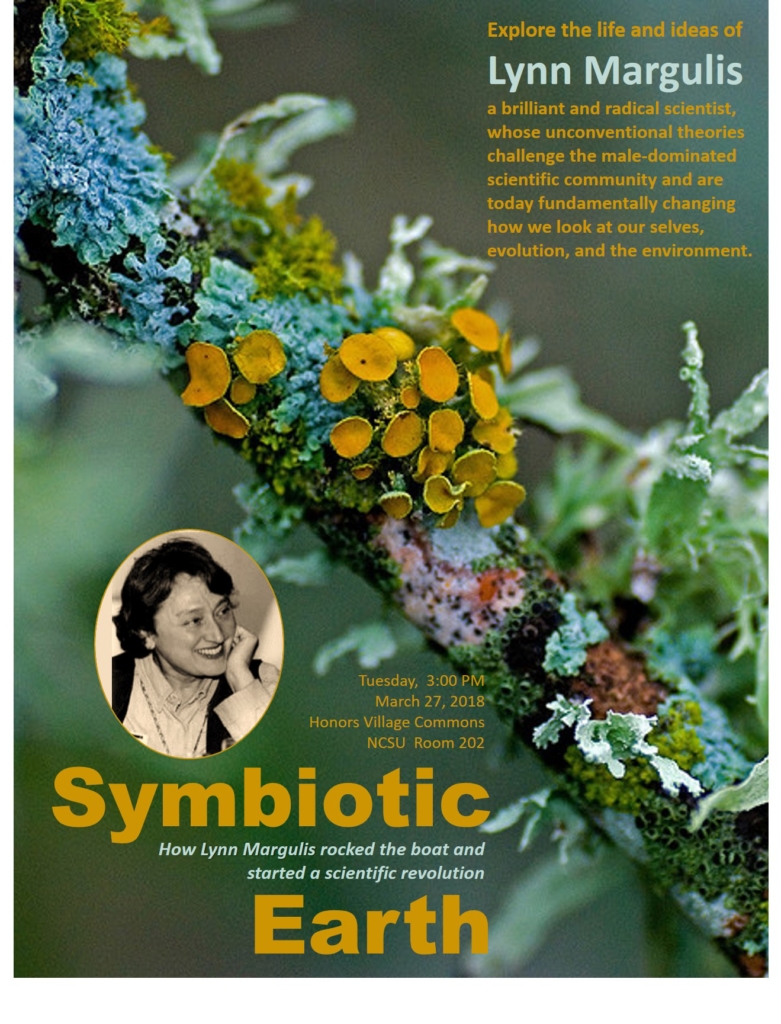
Thursday Night Movie: Symbiotic Earth
9:00 PM
Driscoll Hall
Friday July 27th, 2018
Opening Plenary Session
9:00 AM – 10:30 AM
Villanova Room, Connelly Center
David Christian
Writing Origin Story
Emlyn Koster
Big History and Museums
Friday Morning Coffee Break
10:30 AM – 11:00 AM
Villanova Room
Coffee, Mini Muffins, and Water
Friday July 27th, 2018 | A Block |
| Time | Location | Panel | Presenter |
|---|---|---|---|
| 11:00 AM – 12:00 PM | TBD | Cosmic Walk
The Cosmic Walk, a ritual created in the ‘80’s at Genesis Farm, invites us to bring the knowledge of our unfolding Big History from our heads to our hearts. |
Orla O’Reilly Hazra |
| Jahnavi Prandya | |||
| Rachel Gurarnaccia | |||
| 11:00 AM – 12:00 PM | Bartley Hall 2045 | The Origins of Big History in Romantic Science
Our success as a discipline rises or falls with our ability to reconcile the varied methodologies of the natural sciences, the social sciences, and the humanities. But when and how did these split? This paper explores the intellectual history of the late eighteenth and early nineteenth centuries, before consilience between them was necessary. |
David Blanks |
| Two-Way Traffic on The Road to Big History; Or, Rethinking Consilience
Big History scholars often point to E. O. Wilson’s notion of consilience. This paper argues that Big History depends on the sciences and humanities learning from each other, pragmatically and pluralistically. It will use the history of emotions and conceptions of nature to illustrate what pluralism consilience looks like in practice. |
William Katerberg | ||
| 11:00 AM – 12:00 PM | Bartley Hall 2046 | Our Big Future or: How I Learned to Stop Worrying and Love the Apocalypse
The title of this paper is an ironic reference to the 1964 dark comedy Dr. Strangelove or: How I Learned to Stop Worrying and Love the Bomb. We live on a restless planet and we would not be here otherwise. Humans face numerous existential threats, anthropic and natural, to our survival and wellbeing. This paper will detail those threats and what if anything we might do to prevent or mitigate those threats. |
William Grassie |
| The Battle Tomorrow: Narrative Theory of the Past and Future
Narrative theory, logic, and cognition are intricately connected to conceptions of both history and the future. An important practical aspect of this work is the role such theories have in education, explicit or not. These theories expand Big History as a metanarrative. |
C.J. Hines | ||
| 11:00 AM – 12:00 PM | Bartley Hall 2073 | Teaching Experience from Hong Kong
In this talk, we will share Big History teaching experience in Hong Kong at the university and secondary school levels. For the university course, we have been using Big History as a framework to teach a sustainability course for four years. We will discuss how we shift our paradigm, results, and opportunities. For the secondary school level we co-organize a Big History course annually with a thrid party academy. Some prelimenary results will be discussed. |
Aidan Wong |
| Development of Big History Research and Education in China
The paper examines the development of China’s big history research and education. It reviews the progress of big history research for the past few years. It analyzes the potential influence of official account for promoting big history research and public education in China.i |
Shanshan Lui | ||
| 11:00 AM – 12:00 PM | Bartley Hall 2074 | River of Wealth and Poverty: A Little Big History of the Lower Rio Grande
The Rio Grande has shaped the wealth and poverty of southern Texas and northeastern Mexico. This paper will review the geology, biology, agriculture, modernization and the near future. |
David C. Fisher |
| Environmental Health and Human Health: Lessons from Big History
When information and emotion go hand in hand, it is possible to change your mind. Understanding the relationship between environmental health and human health personalizes our relationship to the earth. It may also help communicate the urgency to change our behavior to become more sustainable. |
Jonathan Yavelow | ||
| 11:00 AM – 12:00 PM | Bartley Hall 036 | Using Analogies to Gain Insights Into Major Historical Transitions
Using analogies can lead to insights about historical transitions. I will use raindrop formation, market consolidation, prairie fires, chain reactions, and rocket launching to shine light on hunter-gatherers, agricultural societies, early civilizations, market development, industrialization, and sustainable societies. |
David LePoire |
| The Philosophy of Big History
Heidegger’s phrase meleta to pan (take into care being as a whole) is the topic philosophy shares with Big History. With respect to the whole there are two possibilities: I am outside the whole or I am inside the whole. As a philosopher I attempt a way of writing from within the whole that encompasses me. |
Gijs Van Andel |
12:15 PM – 1:00PM
Friday Lunch
Dougherty Dining Hall
NO FOOD CAN LEAVE THE CAFÉ
Please adhere to dining time
Friday July 27th, 2018 | B Block |
| Time | Location | Panel | Presenter |
|---|---|---|---|
| 1:15 PM – 3:00 PM | Bartley Hall 024 |
A Little Big History of ‘Fern Hill’ The poetry of Dylan Thomas makes powerful connections between human existence and the natural world, using phenomena such as landscape, rain, the sea and the sun as metaphors for the human experience. |
Craig Benjamin |
|
Ecological Literature & The Anthropocene A growing number of creative writers have recently taken up conceptualizing “hyperobjects” — intricate phenomena with scales so vast as to defy human cognition. The ability to imagine these—and Big History—is a vital project for the literary imagination. |
Brian Deyo | ||
|
Music and the Brain Music moves us in deeply emotional, even spiritual ways. How mere sound waves elicit a change of mood lies in the realm of psycho-acoustics and in patterns that are instantaneously processed by our brains. |
Kurt Ellenberger | ||
|
Aesthetics & Beauty in Evolution Is there a deep aesthetic in the ‘natural’ world? Does beauty play a role in evolutionary dynamics? How are aesthetics important to a comprehensive understanding of Big History? |
Cameron Davis | ||
| Sam Guarnaccia | |||
| 1:15 PM – 3:00 PM | Bartley Hall 2045 |
The New Cosmic Story: Inside Our Awakening Universe We will discuss how “The New Cosmic Story: Inside Our Awakening Universe,” contends that there is a revelation in big history—seeing that an inside story goes along with the outside story. |
John Haught |
| Ursula Goodenough | |||
| John Grim | |||
| Lowell Gustafson | |||
| Jose-Carlos Pons | |||
| Mary Evelyn Tucker | |||
| 1:15 PM – 3:00 PM | Bartley Hall 2046 |
Big History in European High School Transdisciplinary thinking isn’t easy to teach high schools. In Holland we have seen that training of future teachers was essential to make this happen. |
Jesse Bos |
| Adalberto Codetta Raiteri | |||
|
Big History Network in Europe Creating and working within a European Big History network of seven countries: England, Holland, Denmark, Italy, Portugal, Spain and Belgium. |
Olga Garcia-Moreno | ||
|
Research: A Little Big History of Protective Environments Stretching from wombs and eggs, to pupas, beehives, nests, caves and instinctively built dams, to human clothes, architecture and more extensive semio-marterial life worlds, worlds and evolutionary protective mechanisms that counteract situations, in which organisms are not adapted to their larger environment without these worlds. |
Esther Quaedackers | ||
| Jacob Wamberg | |||
| 1:15 PM – 3:00 PM | Bartley Hall 2073 |
Big History Education in Korea Revised Three years ago, Korea’s first big history class started as the first non-English speaking country. Through the efforts of many educators in Korea, we conducted a good class that crossed the barrier of language and culture. We would like to introduce a big history in Korea that has been publsihed in many books, reported in the media, and published in textbooks. In addition, there are three activities that are unique to Korea. |
Hanseung Kim |
| Kyungtae Kim | |||
| Hyogun Lee | |||
| Dong Min Shin | |||
| 1:15 PM – 3:00 PM | Bartley Hall 2074 |
America’s Turn-of-the-Century “Religion” Science replaced religion’. Capitalism replaced community. Nationalism replaced pluralism. The paper will speculate on how the emerging post-Newtonian scientific paradigm can be adapted to a Scientific Religion. |
Ken Baskin |
|
“Cosmos” As A Means to Re-Enchant the Secular West I analyze “Cosmos”, and put forth that Cosmos is in fact adopting the elements of religion that contribute to its longevity and power through awe, reverece, wonder and meaning. By implementing strategies of a religious-like narrative through language, imagery and sound, Cosmos is attempting to enchant science. Moreover, we can understand this strategy as a reaction to a larger movement. I believe taking shape across Western North America, to enchant science and its education, which, in young secular social circles, dismisses religion, yet hungers for depth, meaning, nad purpose. |
Anthony Nairn | ||
| 1:15 PM – 3:00 PM | Bartley Hall 036 | ||
|
Towards a Big History of Warfare This presentation intends to present a framework for a macro-scale analysis of the wider impact of warfare on humanity, building on a synthesis of Big History with social evolution, historical macro-sociology, and civilizational sciences. Although the more destructive effects of warfare are rightly emphasized, the more constructive contributions to human history are too often neglected. It was through warfare that many of the great civilizations, cross-cultural exchanges, and other major impacts were forged. To argue for such constructive contributions are not meant to glorify warfare, but rather seeking more balanced understanding of warfare, and its wider impact upon history.” |
Stephen Satkiewicz | ||
|
Coevolution “The story of the theory of evolution proposed by Charles Darwin and developed in a variety of ways since 1859 only recently begins to appreciate the significance of what it means for our species and the habitat we live in. Evolution begins at the beginning as we can know it 13.8 billion years ago and can be fairly easily followed through natural history up until about two or three million years ago when human culture began to drive the process in tandem with natural selection. Initially the role of human culture was a somewhat passive co-driver with the human use of fire being a major turning point in increasing the pace at which culture takes on greater and greater importance. The major point is that natural selection is no longer the single driver of evolution but we humans through the “”ratcheting”” of our culture are co-driving the process with Mother Nature |
James Tierney | ||
|
From the geopolitical state to planetization From my model of combogenesis for big history, several themes are relevant today as we enter a planetary level: (1) the human innovation of the metagroup at the beginning of cultural evolution, (2) how common interests of the things at prior levels help them combine into the next level, and (3) how whole-systems dynamics stabilized steps of integration. I discuss how these themes can strengthen questions and clarify potential solutions as we move forward from the current level of the geopolitical state toward the planetary. |
Tyler Volk |
3:00 PM – 3:30PM
Friday Afternoon Break
Villanova Room
Coffee, Water, and Snack
Friday July 27th, 2018
Big History Project Plenary Session
3:30 PM – 5:00 PM
Villanova Room, Connelly Center
Bob Regan
The Big History Project
Friday July 27th, 2018
Evening Plenary Session
6:00 PM – 9:00 PM
Villanova Room, Connelly Center
Mojgan Behmand
The Cynthia Stokes Brown Project
Craig Benjamin
Big History, Big Future
Saturday July 28th, 2018 | C Block |
| Time | Location | Panel | Presenter |
|---|---|---|---|
| 9:00 AM – 10:30 AM | Bartley Hall 024 | Proposed Definition of Information & Big History Implications
In this paper I focus not on abstract information being communicated or stored, but on the medium, the physical (matter and/or energy) aspects of information—which I call an information medium. |
Ross Maxwell |
| Do the Fundamentals of Order in the Universe Allow an Anthropocene?
This presentation will summarize how order and information arise in a relationally, dynamically, structured universe, based on the fundamental processes of correlation, differentiation, and nesting hierarchies. Basic challenges to successfully reordering the ecosphere into a viable Anthropocene will be identified. |
Jack Pearce | ||
| The Natures of Information
With few exceptions, experts in complexity concur that information plays a key role in making complex systems extant. Thus, understanding what information “is,” and how it relates to the countervailing and universal force of entropy, is key to understanding complexity. |
Ken Solis | ||
| 9:00 AM – 10:30 AM | Bartley Hall 2045 | The Present State of Japanese Big History
In Japan, Big-History frameworks, thresholds, collective learning, and a modern creation myth are similar but also different. Tsujimura sums up these in a short history and diagrams and shows the future challenge. |
Nobuo Tujimura |
| 9:00 AM – 10:30 AM | Bartley Hall 2046 | Measuring the Rate of Technological Evolution
This panel is aimed at the quantitative analysis of various long-term trends observed within the Big History. The main foci of its interest are represented by quantitative analyses of the planetary evolution acceleration pattern, the 21st century Singularity detected by some of these analyses. |
Anton Grinin |
| The 21st Century Singularity and Its Big History Implications: A Re-Analysis
The existence of rigourous global macroevolution can be accurately described by mathematical functions. We consider the singularity. |
Andrey Korotoyev | ||
| Big Historical Evolution of Symbolic Orders: Higher Order Understanding of Universal Internalization
The panel is aimed at the quantitative analysis of various long-term trends observed within the Big History. Some of the main foci of its interest are represented by quantitative analyses of the planetary evolution acceleration pattern, the 21st century Singularity detected by some of these analyses, and possible interpetations of the Singularity. Any quanitative analyses of any other long-term trends are also most welcome. |
Cadell Last | ||
| Quantifying Long Trends in Big History
The three major stages in extended evolution towards increasing complexity: life, humans, and civilization, can be viewed as separate logistic developments. Each stage has an initial rapid expansion into a new niche followed by a slower integration and synthesis in preparing for the next growth stage. There are also indications of substructure and geometric temporal patterns in each major stage. The duration of each subsequent the stages is reduced by about a factor of 1,000 (i.e 5 billion years ago, 5 million years ago, and 5 thousand years ago). |
David LePoire | ||
| 9:00 AM – 10:30 AM | Brynmawr Room | Big History, Geological Accumulation, And Physical Economics
In A Most Improbable Journey… (2017), Walter Alvarez explains how elements, minerals and life forms are concentrated over 4+ billion years. This essay proposes ‘Physical Economics: ’we are made of stardust, concentrated by Earth, and further concentrated by humans into wealth objects.” |
Dennis O. Flynn |
| The Inevitable Disparity: An Essay on The Legacy of European Colonialism
Homo sapiens developed at a slow, constant pace for millennia until the Columbian Exchange, when human altered the sequence and gained control over the surface of Earth. The Columbian Exchange set up relations between all continents and determined the economic status of each region on Earth. |
Zhonfan Jing | ||
| Research in Big History from An Earth’s Scientist Point of View
“Seven years after the general research outline presented in the paper by Spier in “Evolution: A Big History Perspective†(2011), we have witnessed many research projects in big history. All these research projects fitted in the 5-type scheme proposed by that author. Nevertheless, big history research projects still have many difficulties to enter in the quite strict research agendas of established scientific organizations. This makes it almost impossible to obtain grants for those projects, which at the same time makes it more difficult to engage the most outstanding scientists to big history and decreases the chance of universities and academic institutions to be appealed by big history. In this paper, some examples of big history research published in the most important scientific journals are analyze and a classified in Spier’s scheme. A research roadmap is proposed after the analyses that is based on interdisciplinary big history teams.” |
Olga Garcia-Moreno | ||
| 9:00 AM – 10:30 AM | Bartley Hall 026 | Rachael Carson, The Sea, Silent Spring, and the Fabric of Life
Drawing on contemporary science, Carson revealed the remarkable interdependence of life and myriad factors at all levels of organization from the microscopic to the macroscopic. Her writings engaged and made accessible a wide array of issues and themes with direct relevance to Big History. |
Frederick R. Davis |
| Lynn Margulis’ Symbiotic Earth
Symbiotic Earth is a film about a scientific rebel. Clips from the film will reveal her idea that all of life is deeply interconnected and collaborative has radical implications for how we look at ourselves, evolution, and the environment. |
Lucy Laffitte | ||
| Maria Montessori: 1st Big History Educator
In 1948, Montessori laid the groundwork for Cosmic Education, curriculum for 6-12-year-olds. The curriculum is the transdisciplinary context of an evolving universe, giving the child a grand picture of the reality of increasing complexity and their place within it. |
Jennifer Morgan | ||
| 9:00 AM – 10:30 AM | Bartley Hall 036 | What Cognitive Structures Underlie Big History?
A discussion about Jeremy Lent’s The Patterning Instinct: A Cultural History of Humanity’s Search for Meaning with reviewer David Blanks. Is this book a work of Big History? It will be helpful, but not necessary, if participants have read The Patterning Instinct and Blanks’ review in the JBH in advance of the session. |
David Blanks |
| Jeremy Lent | |||
| 9:00 AM – 10:30 AM | Radner Room | Meditation can be Active and Playful!
The word ‘meditation’ calls to mind a state of stillness or silence in an isolated environment. This experience is NOT that. You will experience a unique type of meditation, based on movement, music, story-telling and stillness done in a mood of mindfulness. It leads to deep relaxation and rejuvenation. |
Prashant Olalekar |
Saturday Morning Coffee Break
10:30 AM – 11:00 AM
Villanova Room
Coffee, Mini Muffins, and Water
Saturday July 28th, 2018
Saturday Morning Plenary Session
11:00 AM – 12:00 PM
Villanova Room, Connelly Center
Jan Visser
Learning to Think in the Anthropocene
12:15 PM – 1:00PM
Saturday Lunch
Dougherty Dining Hall
NO FOOD CAN LEAVE THE CAFÉ
Please adhere to dining time
1:00 PM – 1:45PM
Member Meeting
Villanova Room
Saturday July 28th, 2018 | D Block |
| Time | Location | Panel | Presenter |
|---|---|---|---|
| 2:00 PM – 3:30 PM | Radnor Room | Community as the Context for Learning Big History
How can Big History effectively inspire and motivate humanity beyond the academy, where decisions about the future of our planet are being made? I will show how therapeutic language leads to learning in four areas of life. |
Orla O’Reilly Hazra |
| Big History and Ritual
Rituals have been a part of humanity since the beginning. This panel will sample some of these, including the Cosmic Walk, meditations, storytelling, dances, music, and more. |
Jennifer Morgan | ||
| Joyfull Mindfullness
Participants will experience an embodied cosmic ritual that connects us with the intrapersonal, interpersonal, societal, global and cosmic within the deep time context of an evolving universe. |
Prashant Olalekar | ||
| 2:00 PM – 3:30 PM | Bartley Hall 2045 | A Big History/Geography Alliance for the Teaching the Anthropocene
Rowan University Geography profess of Geography, Planning & Sustainability reflects on integrating the concepts of Big History as a unifying theme in the department’s general education geography courses. |
John Hasse |
| Opening the Doors of a Higher Education Institution to Big History
Dean of the School of Arts and Sciences of Holy Angel University Philippines reflects on the implementation of Big History courses as part of the First Year Experience Program.. |
Edmond Maniago | ||
| Teaching Big History at Western Washington University
Since 2016, all first-year Honors students at Western Washington University have had a Big History experience. How did this happen, how is it working, and how did the university respond? |
Richard B. Simon | ||
| 2:00 PM – 3:30 PM | Bartley Hall 2046 | Measuring Cosmic History: Tools for Understanding the Universe
New cosmological measurements have changed our understanding of the history and fate of the universe. I will review the most current research lay out the prospects for near future discovery. |
David Chuss |
| Why the Future Needs History (and Science)
If Big History as a field combines science and history when thinking about the past, can we also powerfully integrate the two when thinking about the future? This presentation argues that Big History is uniquely poised to encourage deep and nuanced thinking about the future. |
Cameron Gibelyou | ||
| Mathematical Big History as a Part of Evo-SETI Theory
Mathematical Big History is Big History described by virtue the equations of random processes. This author has created a “Evo-SETI Theory”–a purely mathematical description of the Evolution of Life on Earth over the last 3.5 billion years and will share that. |
Claudio Maccone | ||
| 2:00 PM – 3:30 PM | Brynmawr Room | A Three-Part Structure for Big History
Uniquely in the universe, so far as we know, humanity’s situation on earth involves three different types of being: matter, life, and thought. v Material existence in this universe began 13.8 billion years ago with the “big bang” . Life appeared ten billion years later. First came prokaryotic cells 3.5 billion years ago and then, 2.1 billion years ago, the eukaryotic cells. Between 100,000 and 200,000 years ago, the human species appeared and, with it, a type of being, thought, that has transformed the world. This, in essence, is the story told in my forthcoming book, History of the Triple Existence. The three types of being conspire to create a world unlike any other in the universe so far as we know. |
William McGaughey |
| A Theory of No-Thing
The long evolutionary history of the signifying relations of exchange links the origin of nature-culture-history. Nature begins with the dynamic of exchange, culture begins with the practice of exchange, history begins with the syntax of exchange. Instead of a theory of empirical things, therefore, I propose a theory of signifying relations. Instead of a theory of every-thing, I propose a theory of no-thing. |
Andre de Vinck | ||
| Big History and the Process Paradigm
The current Kuhnian paradigm shift is moving our understanding of the world from the linear Newtonian Clockwork Universe to a non-linear process-oriented image, Whitehead’s “unison of becoming”. Using the example of The Thirty Years War, we examine how studying history as process creates Big History at its best. |
Ken Baskin | ||
| 2:00 PM – 3:30 PM | Bartley Hall 026 | Montessori Cosmic Education: Big History for Little People
Children, being naturally drawn to the wonders of the universe, have inspired my own interests to develop tools to better satisfy their curiosity and desire to know. In the process, the students develop higher order thinking skills, a love of learning, a respect for our planet and an understanding of the interdependence of its inhabitants. In this presentation, I will share an overview of how this may all be accomplished as a continuum of expanding curricula that start with a story. |
Claudia Mann |
| Aging in Big History: Elders and Reenchanting the World and The Cosmos
The complexity of the many interrelated challenges, so-called super wicked problems , facing the human species in this new emerging geological epoch, the Anthropocene, is resulting in dramatic cultural changes, but more change is needed. New blends of science and art will be required as we try to grasp the complexity of our current moment in big history if we are to co-create flourishing and more sustainable futures. The relationships between scientific understanding and spiritual practices need further exploration. Transdisciplinary approaches with deep historical and historiographic sensibilities will be essential, as will new conceptions of human wisdom. Elders have and will play a key role in changing our stories towards survival. |
Peter J. Whitehouse | ||
| Elementary Education: Little Learners, Big History, Bigger Future
PhD researcher explores the effects of implementing Big History learning into elementary education where young learners. The research documents students’ growth in understanding the value of a sustainable future. |
Marilyn Ahearn | ||
| 2:00 PM – 3:30 PM | Bartley Hall 036 | Is Life an Order and Information Pump in the Universe?
The life process intakes “energy” into a recursive reproduction process. Thus earth-life extends the ordering potentials and the information content of the Universe. This presentation is designed to lay bare how life bootstraps off the Universe’s ordering processes. |
Jack Pearce |
| Complexity – The Dance of Information and Energy
Adaptive complex systems also seem to differ from other systems in regard to how they transmit internal information from one iteration to the next. We will look at how simple viruses, share essential qualities with larger complex systems. |
Ken Solis | ||
| Interpreting Trends in Big History Towards Sustainability
A continuing debate concerns the interpretation of Big History either as 1) accelerating trends towards a technological singularity or 2) accelerating trends, which reach a peak change rate followed by a more sustainable rate (an inflection). This latter scenario would allow the benefits of new technologies for the long term and be indicated by some global convergence as technology diffuses. The energy system would also transition towards a second higher-level sustainable system (with the first being agricultural society). The slowing down could lead to a much less stressful situation. |
David LePoire |
3:30 PM – 4:00PM
Saturday Afternoon Break
Villanova Room
Coffee, Water, and Snack
Saturday July 28th, 2018 | E Block |
| Time | Location | Panel | Presenter |
|---|---|---|---|
| 4:00 PM – 5:30 PM | Bartley Hall 024 | Give and Take – Science and the Humanities (From an artist’s viewpoint.)
Living at The Geological Observatory of Coldigioco as an artist, I commune with scientists daily. I propose a Big History presentation contemplating and reintegrating Science and Art, as if acquiring another language. |
Paula Metallo |
| Creating Identity Using Meditation and Music
Music can be used as a universal language to communicate beyond boundaries, to inculcate peace and unity promoting philosophies. Music can help people synchronize their beliefs to create a universal identity while maintaining unique identities. |
Jahnavi Pandya | ||
| Cosmophilia, a Visual Arts Practice
This presentation will share the paintings of visual artist Cameron Davis and how questions raised by the Anthropocene. Paintings from the exhibition, Cosmophilia. |
Cameron Davis | ||
| 4:00 PM – 5:30 PM | Bartley Hall 2045 | Seeing the Big Picture: A View from Above
From Low Earth Orbit, we see Earth as a single spherical object and view space without the obstruction of our atmosphere. Researchers from around the globe collect and analyze data about weather, ecology and geology. |
Wendy Curtis |
| Evolution of the Early Solar System
I will focus on aspects of history and evolution of the early Solar system–the first billion years of its existence—the formation of the Solar system in terms of evolutionary laws and rules. |
Leonid Grinin | ||
| Kilonova 2017 Requires A Dramatic Rewriting of Element Creation
On August 17, 2017, astronomers detected their first neutron-star collision in a kilonova. This event in history now requires a rewriting of a one of the most important chapters in the Big History story. |
Barry Wood | ||
| 4:00 PM – 5:30 PM | Bartley Hall 2046 | Threat Assessment: Networks and Disease
We survey the origins of major human diseases, and the likelihood of another major emergence event. We find that pandemics typically follow the crossing of new thresholds in connectivity or intensity of the Human Web and its interface with the biosphere. |
Phillip Day |
| Big History in Secondary Schools
To quote the psychologist Jerome Bruner, “schooling is only one small part of how culture inducts the young into its canonical ways.” This “small part” has become much smaller in recent decades. In fact, scholastic curriculum has embraced only a small part of the enormous and complex changes that scientific and technological research has generated in everyday life. A new culture is now spreading through a multiplicity of media forms that scholastic institutions have struggled to catch on to and understand. The formation of global citizens is an emerging problem. We plan to work simultaneously with students (16-18 in age) and their teachers. |
Adalberto Codetta Raiteri | ||
| Difference, Equality, And Unity Within Durable Systems
Throughout the universe, only those systems which found a lasting balance between the processes of division/differentiation and equalization/unification would have grown enough, and endured long enough, to be observable and researchable today.This claim has direct implications for contemporary human social life: human beings must find durable ways to restore, and maintain, societal balances amongst the social characteristics of unity, equality, difference, and stratification to have a chance at being found by the lenses of big historians of the distant future. |
Bryan Routon | ||
| 4:00 PM – 5:30 PM | Brynmawr Room | A New Story of Race and Place
“History is governed by those overarching movements that give shape and meaning to life by relating the human venture to the larger destiny of the universe. Creating such a movement might be called the Great Work of a people… The historical mission of our times is to reinvent the human at the species level, with critical reflection, within the community of life-systems.” (excerpt from Thomas Berry – The Great Work, 1999) |
Carl Anthony |
| Paloma Pavel | |||
| Felicia Davis | |||
| Richard Schulterbrant Gragg | |||
| Relationship and Community | Mathew Chandrankunnel | ||
| The Future of World Calendars
In the past, ancient societies struggled to align their calendar to the sky bodies and events. Nowadays, we struggle to keep our calendar aligned too. How world scientists plan to cope with the evermoving sky in the near future and in the long term? We will look at International Organizations, time-protocols, religious authorities and astronomical routines. In short: current plans for the calendar reckoning of the future, as well as some history about these plans. The presentation blends both funny and seriuous, thoughtful points, with some joking inbetween technical details for amenity. |
Jaume Noguera Vila-Masana | ||
| 4:00 PM – 5:30 PM | Bartley Hall 026 | Environmental Ethics of Astronauts
In the late 20th century humankind got a cosmic perspective through the eyes of astronauts. The future environmental ethics should combine astronaut-ethics and Earth-ethics networking local ecological lifeways on earth. |
Hirofumi Kayayama |
| Universal Studies: Variety in Holism
The universal studies vision of existence is expressed through multiple themes in different locales and among different peoples. This is a process of ‘variety in holism’. Such a range of identities offers an alternative to individualism and scientism. |
Barry Rodrigue | ||
| A Cosmic Feast: The Big-Historian Explosion
Big History allows us to celebrate the diversity of the universe. This means cultivating multi-cultural (ethnicity, gender, neurotype), multi-morphological (song, dance, art), and multi-agent (plant, animal, fungi). |
Nobuo Tsujimura | ||
| Is There Such a Thing as Love in Big History?
Big historians do not usually talk about love, though love bolsters morality and grants meaning to human existence. The Chinese way of achieving Big Love in Big History is expansive beyond measure. |
Sun Yue | ||
| International Student Exchange
How we bridged time and lanquage barriers to lead engagement in international discussions. |
Rachel Guarnaccia | ||
| 4:00 PM – 5:30 PM | Bartley Hall 036 | Devil’s advocate: Big History in High Schools?
Ruth Firer will take a Devil’s Advocate stance against Big History at a conference on Big History. I will argue that Traditional History does a better job at preparing our high school students for the world they will inherit than Big History. |
Ruth Firer |
| Big History Inclusive Education
I will describe how using a Big History Deep Dive into the Broome area and an immersive experience at Cygnet Bay Pearl farm brought Big History to life for students in years 7 -8. |
Hayden Brown |
5:30 PM – 7:00 PM
Saturday Dinner
Dougherty Dining Hall
Saturday July 28th, 2018 | 7:30 pm
Emergent Universe Oratorio
St. Thomas of Villanova Church
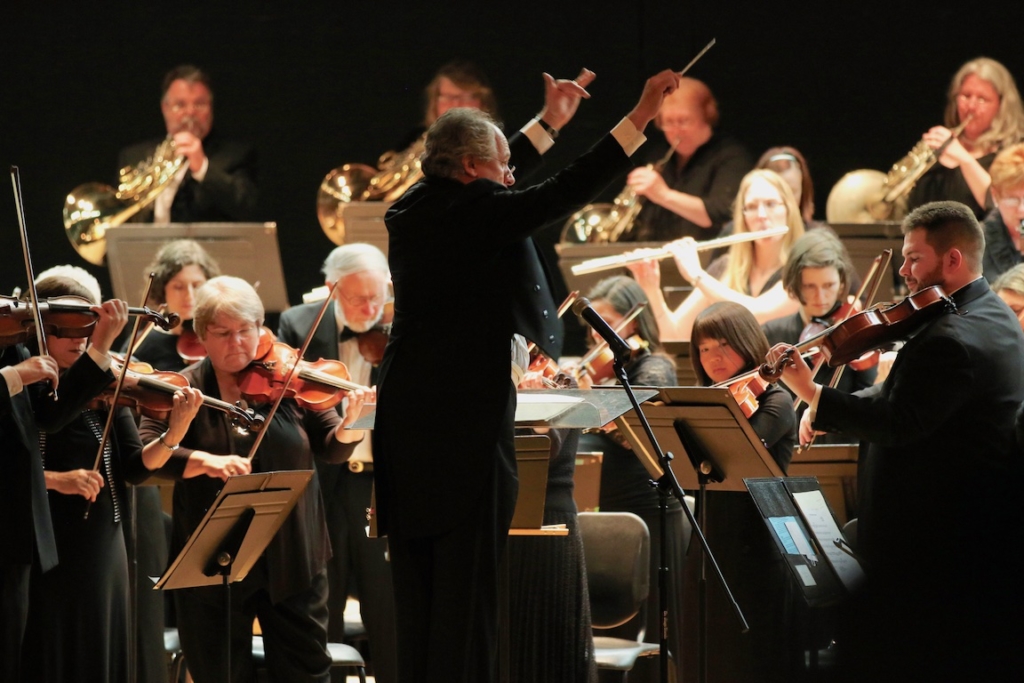
Sunday July 29th, 2018 | F Block |
| Time | Location | Panel | Presenter |
|---|---|---|---|
| 9:00 AM – 10:30 AM | Bartley Hall 024 | Italy’s Open Air Museum
Because Italy’s geology has affected its history, art, religion, medicine and culture, you might say that Italy is “An Open Air Museum.” This beautiful country provided abundant Earthly inspiration for Virgil, Dante, Goethe and Leonardo da Vinci. |
Ann Pizzorusso |
| The Universe Story Calendar: Humanity’s New World and Big History Educational Tool
In my work with calendars I have seen the transcending and including go from Human to Earth to Universe Calendars. Our Big History can now be told, learned and taught daily, weekly, monthly and yearly through this essential transcending the Gregorian Calendar of 1582 CE. |
Thomas R. Spiritbringer | ||
| 9:00 AM – 10:30 AM | Bartley Hall 2045 | Broke Down, Busted and Brilliant: Collective Learning in A Used Universe
Technological innovations tend to be distributed unequally. Despite our fascination with cutting-edge gadgets, most people find themselves making do with the “dull edge.” Teachers in low-budget schools watch lesson plans fall apart when they can’t get their outdated A/V equipment to work; scientists in developing countries are left stranded at their keyboards by unpredictable power outages in their labs; teens from low-income families are excluded from the social opportunities that come from using the newest smartphones. This paper explores the resilience, creativity, and new networks of collective learning that emerge when those outside the vanguard of technological innovation work together to make the most of their used universe. |
Christian Jennings |
| Big History and Virtual Reality: The New Frontier of Collective Learning
Through the millenia, humans have created increasingly efficient and realistic methods of preserving and sharing information across networks and through the generations. The development of symbolic language unlocked our ability to communicate abstract concepts effectively and to preserve knowledge over time. Virtual reality takes this sharing ability to new heights. With virtual reality, a creator can construct any experience, real or imagined, historical or future, and share it with other individuals. Because of the potency and sense of presence,virtual reality technologies represent a new frontier in collective learning. |
Julia Rathmann-Bloch | ||
| Big History, Technology and Linguistics
Linguists uncover the mysteries of human languages by employing scientific methods. Recently, automated technology has made it convenient to analyze and discover patterns from individual datasets; the linguistic differences and traits of individual languages are now taken into consideration so that computers can serve as an appropriate tool of satisfactory analysis. In the era where the use of technology is axiomatic to the study of linguistics, this paper argues that linguists should take a profound interest in the insights from Big History by considering how Big History can relate to linguistics. |
Ji Hun Wang | ||
| 9:00 AM – 10:30 AM | Bartley Hall 2046 | Crossing the Threshold of Hope
This project crosses the threshold of hope from the past, to the present and to the remote future. It provides a philosophical meaning of hope from its original concept of self-interestedness to that which is purely beyond the self. |
Alma S. Espartinez |
| The Legitimate Heir to Religion — And Big History’s Task
The two most relevant sciences are ethology and neurology. Ethological studies show that we are a social species. Our deepest ethical and moral imperatives come from this fact. Neurology can show the different circuits that process logic/thinking, and emotion/belief/certainty. |
Davidson Loehr | ||
| Mythopoetic Imagination
Mythopoetic imagination can be a means for the critique of prevailing myths. In complex pluralist societies, there are hegemonic struggles over constitutive myths, shaping both our explanatory stories about the past and scenarios about possible futures. An alternative cosmic story-line could center on the prospects of life rather than death and on common learning. |
Heikki Patomi | ||
| 9:00 AM – 10:30 AM | Brynmawr Room | The Digitalization of the World
This presentation will identify the origins, drivers and characteristics of the “Information age”, and assess prospective effects in major aspects of economic and political life. |
Jack Pearce |
| Thermodynamic & Informational Aspects of Events Forging the Modern Era
Eric Chaisson states that thermodynamics doesn’t predict what will happen, but what can happen. Claude Shannon discovered the indelible link between information and thermodynamics. This presentation will combine thermodynamic and informational aspects of historical events. |
Ken Solis | ||
| 9:00 AM – 10:30 AM | Bartley Hall 026 | Unlocking Complexity as a Turning Point in Conscious Transformation
This presentation will unlock the relationships between complexity, sustainability and urban infrastructure. |
John Motloch |
| Emergence
Features arise with the ordering of parts to make new wholes. The emergence of new properties presents a challenge to our understanding that may remain forever beyond scientific exploration. This theme deserves repeated emphasis in Big History courses because it is omitted from treatment in the sciences, including the social sciences. |
Barry Wood | ||
| The Evolution of Consciousness
“This paper begins to survey and evaluate in a transdisciplinary context some of the continually progressing but already considerable material exploring the nature and relevance of consciousness, in order to contribute to the ongoing dialogue about the questions of integrative themes, meaning and purpose in Big History. Today, evolutionary theory is still in process of development, while consciousness studies are not only becoming acceptable, they are presenting one of the most stimulating and intriguing frontiers across a wide spectrum of disciplines. Big History has much to offer these inquiries, and may greatly benefit from them. |
Ken Gilbert | ||
| Ties That Bind
Although the universal system exhibits entropy, there are pockets of matter that have become more structured over time. What binds units together? A crucial transition is when life consciously responded to its environment and became self-conscious. As the most social beings developed the latter, they also developed a “theory of mind,” enabling them to be aware of others’ intentions and emotions, thereby enabling greater levels of social organization. |
Lowell Gustafson | ||
| 9:00 AM – 10:30 AM | Bartley Hall 2044 | The Earth, the City & the Hidden Narrative of Race
We need a new story on race and place. As we face global warming, big history provides a liberatory context for disadvantaged communities who will be hit hardest and first as well as a unifying momentum for us all. This panel will begin by Dr. Tucker setting a context for the climate crisis serving as an accelerator in this process of reinventing the human. A brief video beginning with the Big Bang offers a deep time perspective featuring the 8th Threshold e.g. the Transatlantic Slave trade, and grounded in a “small history” example of the founding of Philadelphia and Pennsylvania. Finally, current Innovative applications of big history will be drawn from the work of Breakthrough Communities including multi-racial climate justice activists in the SF Bay Area, in Kings Cross London and from the network of Historically Black Colleges and Universities. Participants will have the opportunity to apply tools that have been developed from several decades of work integrating Big History with activism in frontline communities to their own context. |
Carl Anthony |
| Paloma Pavel | |||
| Mary Evelyn Tucker | |||
| Richard Schulterbrant Gragg |
Sunday Morning Coffee Break
10:30 AM – 11:00 AM
Villanova Room
Coffee, Mini Muffins, and Water
